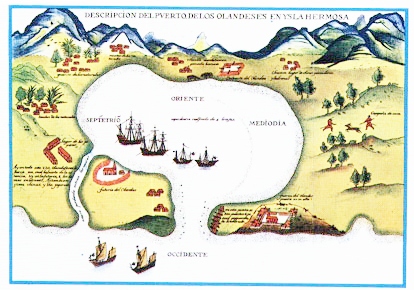Wednesday, March 23, 2011
Module no. 8: Taiwan Literature
Posted by: Beverly Abelon
Sources:
_____________________________________________________
 Literature of Taiwan refers to the literature published in or particular to Taiwan. As mainland China and Taiwan share a written language of Chinese and much of the Chinese cultural heritage, literature in Taiwan is largely similar to the literature in mainland China. The literature taught in Taiwanese schools is classic and modern Chinese literature with some local works. However, due to political sensitivities, literature relating to politics on mainland China or communism was banned until the 1980s.
Literature of Taiwan refers to the literature published in or particular to Taiwan. As mainland China and Taiwan share a written language of Chinese and much of the Chinese cultural heritage, literature in Taiwan is largely similar to the literature in mainland China. The literature taught in Taiwanese schools is classic and modern Chinese literature with some local works. However, due to political sensitivities, literature relating to politics on mainland China or communism was banned until the 1980s.The Taiwanese literature movement (also Taiwan literature movement, Nativist literature movement) refers to the effort of authors, poets, dramatists, musicians, and publishers in Taiwan to establish recognition of a distinctly Taiwanese body of literature. The movement was the subject of considerable international as well as domestic debate in the 1970s and 1980s.
"If You Would Ask" by Lee Min-yung
If you ask
Who is the father of the island of Taiwan
I will tell you
The sky is the father of the island of Taiwan
If you ask
Who is the mother of the island of Taiwan
I will tell you
The ocean is the mother of the island of Taiwan
If you ask
What is the past of the island of Taiwan
I will tell you
Blood and tears drop on the feet of the history of Taiwan
If you ask
What is the present of the island of Taiwan
I will tell you
Corruption in power is eroding the Taiwanese soul
If you ask
What is the future of the island of Taiwan
I will tell you
Step out on your feet, the road is open to you.
(Translation: Joyce Huang)
Authors saw that much of the history and tradition of the island was being ignored or suppressed in government-sponsored education. In their work they sought to carry forward this distinct Taiwanese cultural identity that existed apart from the colonizing efforts of China and Japan. Just as their predecessors in the 1920s had incurred official sanction from the Imperial Japanese government then ruling the island, authors in this new movement worked against the bans imposed by the authoritarian Kuomintang regime and were targeted for criticism by the Communist government in China. The movement is closely associated with the emergence of Taiwan's democracy in the 1990s. Figures associated with the Taiwanese literature movement includes
Lee Min-yung, Tseng Kuei-hi, Yang-Min Lin, Wu Ying-tao, Lin Chi-yang (pen name: Xiang Yang), Tyzen Hsiao (composer),Li Kuei-Hsien.
Authors sought to gain acceptance for the Taiwanese Hokkien language along with other languages encountered on the island (aboriginal languages and Hakka). These, the mother tongues of the majority of the island's natives, became in their hands the vehicles for serious literature, including essays, plays, and epic poetry. They made the island itself the center of their perspective on history and looked to local traditions and lore as fuel for creative ideas.
Assessment:
Give your own opinion with regard to the literary culture of Taiwan and China.

0 comments:
Post a Comment